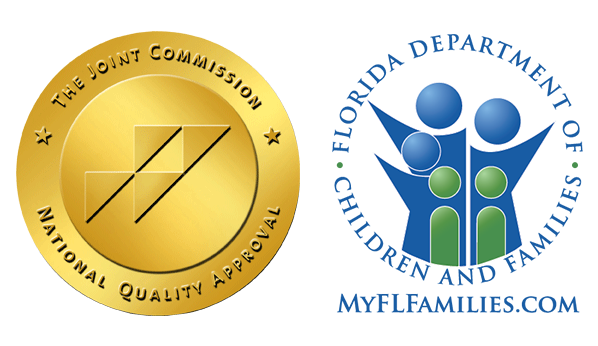Alcoholism, otherwise known as an alcohol use disorder (AUD), is characterized by the compulsive need to use alcohol or an inability to control drinking habits.
Alcohol addictions are the most common addictions in the US, with recent research finding that 14.5 million adults live with alcoholism. Like all substance addictions, alcohol addictions cause emotional and physical pain to those suffering and their loved ones.
Alcohol Addiction or Alcohol Abuse?
Often we hear the terms ‘alcoholism’ and ‘alcohol abuse’ used interchangeably. As a result, they can be mistaken for the same thing. However, they differ in terms of how severe the problem is.
Alcohol abuse arises when an individual notices the following changes in their behavior:
- Difficulty completing everyday tasks and responsibilities at work, school, or home
- Driving while under the influence of alcohol
- Being unable to stop drinking despite recognizing the harm it’s having
Those who abuse alcohol do not necessarily drink every day, nor are they regular drinkers. However, some people with this condition may be classed as binge drinkers. It can be tricky to determine whether someone abuses alcohol for these reasons.
Usually, alcohol abuse is present in males if they drink more than 12 to 15 drinks per week. In women, alcohol abuse can be spotted if they consume eight or more drinks per week. If people drink over this recommended amount, they may be categorized as ‘drinking heavily.’
However, we cannot make any diagnosis based solely on the number. If alcohol is being consumed in large quantities or has adverse effects on a person’s life, they may be experiencing an alcohol use disorder.
Related: Sober Living Florida
Alcoholism is more severe than alcohol abuse. When alcoholism is present, alcohol abuse has progressed to a chronic disease whereby a person has become physically and mentally dependent on alcohol to survive. This form of alcohol dependence has some serious side effects which impact the individual and those around them.
If a person lives with alcoholism, they will have gradually built a tolerance for alcohol over time. Unfortunately, this may cause them to drink larger volumes of alcohol, resulting in physical illnesses. If someone with alcoholism attempts to stop drinking, they may experience withdrawal symptoms and intense cravings to continue drinking alcohol.
Stages of Alcohol Use Disorder
There are generally three stages of alcoholism. Within these stages, many elements are completely unique to the individual. If left untreated, the stages of alcoholism progress. As one stage follows the other, this creates a domino effect.
If a person occasionally binge drinks, their drinking habits could progress into the late stages of alcoholism if it is left unchecked.
Being aware of the three stages of alcoholism can help many people recognize when their drinking or that of a loved one becomes problematic.
Stage One – Denial
Usually, the first stage of alcoholism is denial. This is often a defense response when those struggling with alcoholism are unable to accept or confront that they have a problem. It’s one of the most crucial symptoms that indicates an alcohol use disorder could be present.
In other instances, denial can be conscious. This means that a person may actively avoid a problem that they know exists on some level. It is also common for people struggling with alcoholism to believe that there is nothing wrong with them and that their drinking habits are under control.
Denial can arise for a number of reasons. Sometimes people will see others living with more severe forms of alcoholism and compare themselves. They may also assure themselves that they are drinking as a reward or to relieve stress after getting through the day at work.
In contrast, some people will enter this stage of alcoholism because their lives – professional or personal – have been negatively impacted by their drinking. It’s common for people with alcohol addiction to forget the negative impacts of drinking after they happen and instead focus on the idea that alcohol helps them.
Stage Two – Addiction
The second stage of alcoholism is developing an addiction. This stage occurs as those who engage in negative drinking patterns, unfortunately, lose control over themselves.
Usually, at this stage, people begin binge drinking and display some or all of the following symptoms:
- Regular hangovers
- Intense cravings to drink alcohol
- An increasing tolerance increasing to alcohol
- Alcohol withdrawal symptoms
- Difficulty sleeping
- Loss of appetite
- High blood pressure
As somebody progresses through this stage, they may increase how much alcohol they drink to keep up with their increasing tolerance.
Stage Three – Physical and Mental Decline
The most intense stage of alcoholism is the third stage. During this stage, the effects of alcohol negatively impact the physical and mental health of many people.
Due to the impact alcohol has on the body, excessive alcohol consumption may cause some severe health problems, such as:
- Liver damage, such as steatosis or hepatitis
- Abdominal pain
- Pancreatitis
- Breast cancer
- Esophageal cancer
- Colorectal cancer
Excessive drinking habits also weaken the immune system. This means that people living with an addiction are more likely to contract illnesses like the flu or pneumonia.
The psychological side effects can be just as detrimental, if not more, than the physical ones, and they can create problems in relationships and behavioral challenges.
Usually, somebody with an alcohol addiction will end up isolating themselves from their loved ones, and they may become extremely secretive. The following symptoms may also surface:
- Anxiety
- Depression
- Restlessness
- Physical reflex problems
- Brain development problems
- Memory loss
- Difficulties thinking clearly
- Aggression
Relationships with friends and family members can be severely damaged by alcohol addiction. Although these connections can be healed if comprehensive alcohol addiction treatment is sought, untreated alcoholism can cause profound wounds within relationships.
End-Stage Alcoholism
Medical treatment is easier to administer in the early stages of alcoholism as withdrawal symptoms are less intense and the risk of relapse is not so high. However, as an individual progresses to the final stage of alcoholism, they may regularly binge drink, which can cause recovery rates to decrease.
Excessive drinking can also cause malnutrition and dehydration as physical needs are neglected when alcohol is prioritized. Physical vulnerability combined with mental and emotional frailty can have extremely damaging, sometimes fatal, consequences.
If somebody attempts to stop drinking in this final stage, they will likely experience severe alcohol withdrawal symptoms. This could include hallucinations or delirium tremens (DTs), which can be fatal. But it is important to remember that with appropriate help and support, recovery is possible at any stage of alcoholism.
Medication, therapy, and comprehensive rehabilitation can all be employed via inpatient or outpatient addiction treatment. Additionally, support from family members and friends can increase recovery rates.
Treatment for Your Drinking Habits
Whether you are currently in stage one of alcoholism or experience end-stage alcoholism, recovery is possible.
A quality treatment program, caring and compassionate staff, and a strong sense of hope and will for the future can help you quit drinking and support you in healing from the damage of long-term alcohol abuse.
If you are ready to take the first step in recovery, contact us today. In doing so, we can provide a wealth of information surrounding our treatment options and addiction treatment program and help you secure a lifelong recovery free from alcohol.












